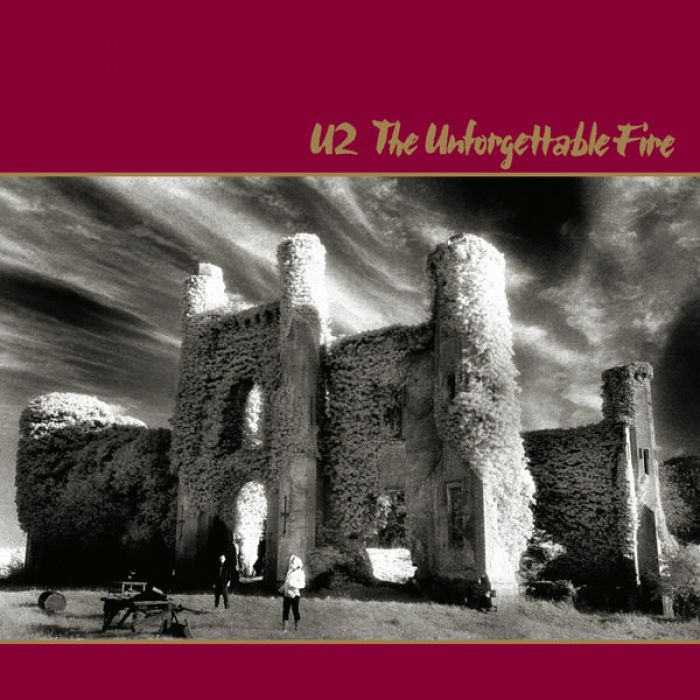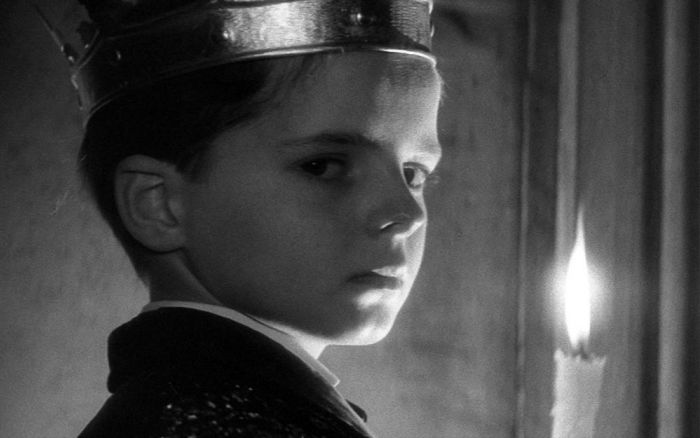Reading: U2’s “Unforgettable Fire,” Beauty & Suffering, “Pulp Fiction,” Pedophiles, Gamergate & more

The Unforgettable Fire is one of my favorite U2 albums, and one that I feel often gets overlooked, so I appreciate anytime someone takes a deeper look at it: “The U2 album… refers both directly and indirectly to the human capacity for inward and outward violence, including such harrowing topics as heroin addiction (“Bad”), racism and murder (“Pride”), and the sad decline of a cultural idol (“Elvis Presley and America”). But the title track itself, a deeply evocative song full of longing, sadness, and hope, does not initially seem to specifically allude to the exhibit or tragic event that gave it its name.”
Death, suffering, and loss have been hovering around the edges of my family for the last few weeks as good friends have dealth with the loss of loved ones. Which is why I really appreciated this Christ and Pop Culture piece on beauty and suffering: “The trouble is, we all want to see beauty in suffering, so we look for it, peering at our own pain or the pain of someone we love, wielding Bibles and stacks of recent bestsellers on the topic as our guides. But our efforts are futile. Beauty is, by its very nature, incompatible with chaos, with the multitude of disfigurements that alter the course of our lives as humans. And because these disfigurements exist in the material realm, considering them demands that beauty be considered in the same context.”

An argument for why Pulp Fiction is the best indie film of all time: “[A] Tarantino movie is an event. They only come around once every few years, but when they arrive, you can bet your house they’ll be crafted and styled beyond any perceptible level of minutiae. They’ll be innovatively cast, meticulously soundtracked and scored, and they will look, feel, and sound like Quentin Tarantino to their marrow. It’s not that everyone should love his movies. Hell, not everyone needs to even like them. But if you’ve ever cared about cinema in your life, you must respect them.”
Luke Harrington makes an uncomfortable realization concerning pedophiles: “It feels good to have someone we can all point at and say, ‘That person is a bad person [and, therefore, since we are not that person, we are good people].’ It’s the same reason we all like to talk about Hitler, more than half a century after his death. As long as we have a monster to point at, we can feel good about ourselves.”

If you don’t know what Gamergate is, consider yourself lucky. It’s one of the vilest, crassest, and most misogynistic web phenomena I’ve seen — even worse than YouTube comments. Richard Clark considers what we can learn from Gamergate’s hateful narrative: “The narrative conveyed by Gamergate is marked by fear, and it includes an implicit assumption that videogame developers and journalists must refrain from politics, worldview assumptions, and general subjective perspective in their work. In other words: Gamergate is about enforcing homogeneity in the videogame space. Gamergate is about silencing alternative perspectives.” Related: An excellent takedown of Gamergate’s slippery logic, more on Gamergate’s legacy of harassment, and a Clickhole piece that’s the apotheosis of Gamergate pieces.
Speaking of the Internet’s worst, this is a fascinating and heartbreaking piece about the people who keep filth from contaminating Facebook and Twitter feeds — and the toll that a constant stream of violent and sexual material takes. “Constant exposure to videos like this has turned some of Maria’s coworkers intensely paranoid. Every day they see proof of the infinite variety of human depravity. They begin to suspect the worst of people they meet in real life, wondering what secrets their hard drives might hold. Two of Maria’s female coworkers have become so suspicious that they no longer leave their children with babysitters. They sometimes miss work because they can’t find someone they trust to take care of their kids.” Related: A disturbing account of how social media has turned against women and how tech companies have failed to stem the tide of misogyny. Via

I’m not from Kansas City, but James Hoskins’ piece about loving his hometown definitely resonated with me. “Kansas Citians love Kansas City simply because it is theirs. And we love the Royals simply because they’re ours. Moments of glory, like the Royals reaching the World Series, are like the blooming of a flower after a long frost. It’s a time of enjoying the fruits of our labor, and a joy that comes from seeing something you love flourish. Yet, we don’t only love Kansas City because it is flourishing. It is flourishing because we have loved it.”
A Brief History of Scientists Hunting for Time Travelers: “Earlier this year, a pair of physicists published the results of a pretty self-explanatory study, “Searching the Internet for evidence of time travelers.” Instead of staging some sort of event and counting on publicity to attract the people of the future, these scientists went on the hunt for evidence of where time travelers had been online. In a sense, they were searching for their digital footprints.” Via

Just in time for Halloween, The Dissolve reviews my favorite horror movie of all time, Jack Clayton’s The Innocents: “[Director] Clayton fills the screen with disturbing images and gives the film around them a constant sense of lushness falling into decay, suggesting the children’s cheerful energy is slowly morphing into something more disturbing. If the white roses shedding petals and falling into rot aren’t psychological enough for Crowther, possibly he should be content with the child-statue, still clinging to the hands of a severed adult-statue, and with a roach wriggling out of its mouth. The film’s symbolism is never subtle, but that doesn’t make it any less effective.”
Believe it or not, but it is possible, even in this factious age of ours, for atheists and believers to be friends and colleagues. “To use the theological term, Professor Skeel was a Christian apologist, one who explains and defends the faith against doubters. Dr. Arsenault was an atheist, as he explained in the email, who had attended the public discussion with his own humanist loyalties. Yet he wrote that he appreciated Professor Skeel ‘for choosing to pose the big difficult questions of Christianity.’ The next day, Professor Skeel sent a note suggesting they have coffee and talk.”